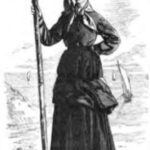In the mid-17th century the Spanish Monarchy attempted to reassert its supremacy in Europe. For this purpose, the Count Duke of Olivares, the valide of Philip IV, was at the head of the government. Spain’s entry into the Thirty Years’ War began with some success. However, from 1640 onwards, the monarchy was showing signs of exhaustion. This weakness was compounded by the entry of France in 1635, which was determined to break the Augsburg pincer and thus establish itself as the hegemonic power in Europe. Attempts to make the Catalan Generalitat contribute to the war effort, together with the uncomfortable presence of the tercios, ended up causing a huge problem. The Catalan territory was seduced and placed under the sovereignty of Louis XIII. Attempts to recover this territory failed in 1642, which spelled the end for Olivares. With the fall of such a powerful figure, his enemies took advantage of the situation to make fun of his fall from grace. This led to the popularity of pasquines that satirised the disaster the Valide had committed, calling into question the reputation of the monarchy.
Collection: Texts
Chronology: XVII
Scope: Secondary Education, Baccalaureate, University
Link: https://rua.ua.es/dspace/bitstream/10045/28460/1/RHM_28.pdf
Resource type: Historical source
Source: Elliott JohnH. y García Sanz, A. (Eds.): La España del conde duque de Olivares, Valladolid, 1990, p. 339-372, la cita en p. 362.
Language: Spanish
Owner: Djebril Bouzidi (Modernalia)
Identifier: Elliott JohnH. y García Sanz, A. (Eds.): La España del conde duque de Olivares, Valladolid, 1990, p. 339-372, la cita en p. 362.
Abstract: Satirical pasquín against the Count Duke of Olivares on his fall from grace
Tags





